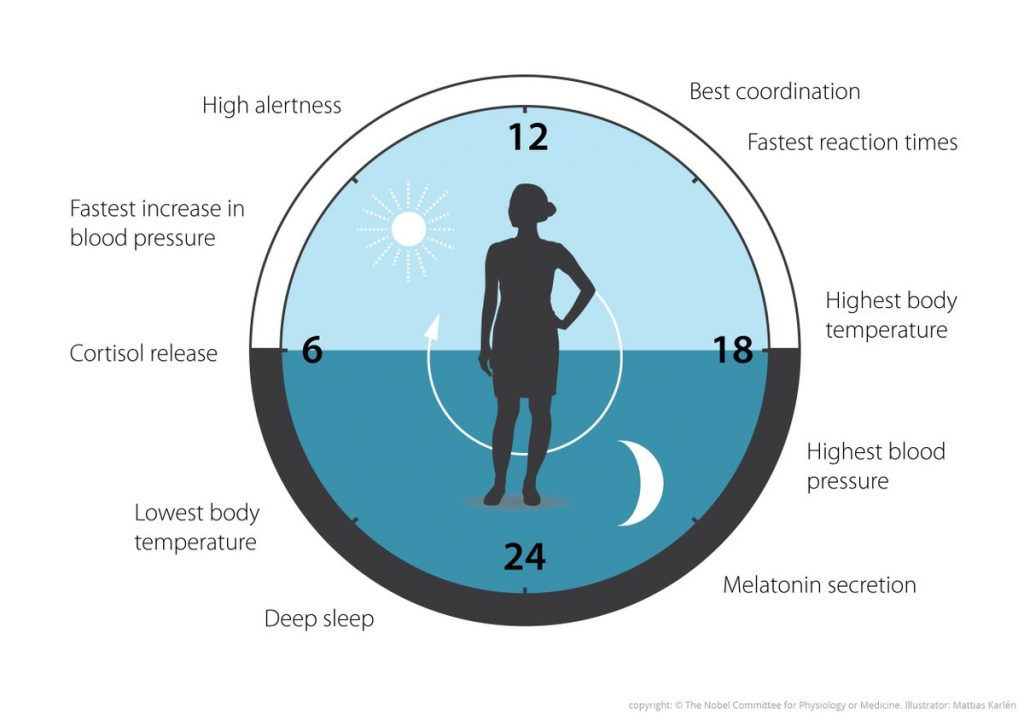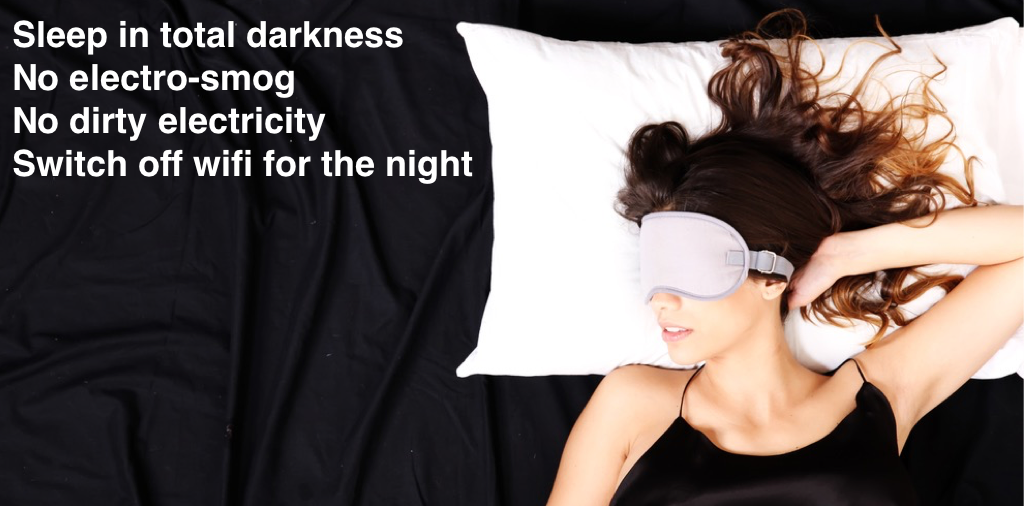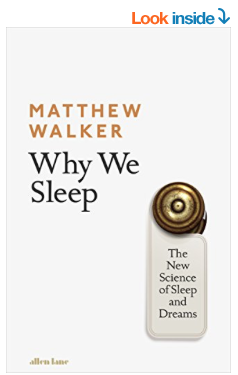Sleep is the best medicine
It looks like sleep is the panacea that can solve most of your problems. Health-wise, sleep will protect you from flu and infections, heart disease, mental health problems, dementia, and accidents among other things as well as help you lose weight and make you look younger (beauty sleep). Sleep will boost your overall performance and make you more productive, creative and socially adept. When learning is concerned, sleep will boost your memory. One of the key functions of sleep is to process and consolidate your memory.
“Routinely sleeping less than six or seven hours a night demolishes your immune system, more than doubling your risk of cancer.”
Interestingly enough, the 108th Nobel Prize in physiology or medicine for 2017, has been awarded to a trio of American scientists, Jeffrey C Hall, Michael Rosbash and Michael W Young, for their discoveries on the molecular mechanisms controlling circadian rhythms – in other words, the 24-hour body biological clock, that helps to regulate sleep patterns, feeding behaviour, hormone release and blood pressure. Their discoveries have explained, “how plants, animals and humans adapt their biological rhythm so that it is synchronised with the Earth’s revolutions.”
“Sleep is the single most effective thing we can do to reset our brain and body health each day. Sleep is the best medicine.” Professor Matthew Walker

Biological clock
Sleep better and remember more
Countless research in the last 100 years has shown that sleep is critical for memory retention. The reported benefit is between 20-40%, compared with the same amount of time awake. If you’re studying for an exam this will make a huge difference to your study. It looks like the more you study the more you have to sleep.
12 Tips for Healthy Sleep according to Why We Sleep, The New Science of Sleep and Dreams by Matthew Walker
1. Stick to a sleep schedule.
Go to bed and wake up at the same time each day. As creatures of habit, people have a hard time adjusting to changes in sleep patterns. Sleeping later on weekends won’t fully make up for a lack of sleep during the week and will make it harder to wake up early on Monday morning. Set an alarm for bedtime. Often we set an alarm for when it’s time to wake up but fail to do so for when it’s time to go to sleep. If there is only one piece of advice you remember and take from these twelve tips, this should be it.
2. Exercise is great, but not too late in the day.
Try to exercise at least thirty minutes on most days but not later than two to three hours before your bedtime.
Dementia and cancer are both are related to inadequate sleep.
3. Avoid caffeine and nicotine.
Coffee, colas, certain teas, and chocolate contain the stimulant caffeine, and its effects can take as long as eight hours to wear off fully. Therefore, a cup of coffee in the late afternoon can make it hard for you to fall asleep at night. Nicotine is also a stimulant, often causing smokers to sleep only very lightly. In addition, smokers often wake up too early in the morning because of nicotine withdrawal.
4. Avoid alcoholic drinks before bed.
Having a nightcap or alcoholic beverage before sleep may help you relax, but heavy use robs you of REM sleep, keeping you in the lighter stages of sleep. Heavy alcohol ingestion also may contribute to impairment in breathing at night. You also tend to wake up in the middle of the night when the effects of the alcohol have worn off.
Men who sleep less have smaller testicles.
5. Avoid large meals and beverages late at night.
A light snack is okay, but a large meal can cause indigestion, which interferes with sleep. Drinking too many fluids at night can cause frequent awakenings to urinate.
6. If possible, avoid medicines that delay or disrupt your sleep.
Some commonly prescribed heart, blood pressure, or asthma medications, as well as some over-the-counter and herbal remedies for coughs, colds, or allergies, can disrupt sleep patterns. If you have trouble sleeping, talk to your healthcare provider or pharmacist to see whether any drugs you’re taking might be contributing to your insomnia and ask whether they can be taken at other times during the day or early in the evening.
7. Don’t take naps after 3 p.m.
Naps can help make up for lost sleep, but late afternoon naps can make it harder to fall asleep at night.
8. Relax before bed.
Don’t overschedule your day so that no time is left for unwinding. A relaxing activity, such as reading or listening to music, should be part of your bedtime ritual.
9. Take a hot bath before bed.
The drop in body temperature after getting out of the bath may help you feel sleepy, and the bath can help you relax and slow down so you’re more ready to sleep.

To get good quality deep sleep: sleep in total darkness and switch off wifi for the night
10. Dark bedroom, cool bedroom, gadget-free bedroom, no wifi.
Get rid of anything in your bedroom that might distract you from sleep, such as noises, bright lights, an uncomfortable bed, or warm temperatures. You sleep better if the temperature in the room is kept on the cool side. A TV, cell phone, or computer in the bedroom can be a distraction and deprive you of needed sleep. Having a comfortable mattress and pillow can help promote a good night’s sleep. Individuals who have insomnia often watch the clock. Turn the clock’s face out of view so you don’t worry about the time while trying to fall asleep. It’s recognised that electromagnetic pollution (and any light) can affect melatonin production and deep sleep. Switch off your wifi for the night and sleep in total darkness. Also, geopathic stress can affect sleep.
The shorter you sleep, the shorter your life – based on 20 large-scale studies that have tracked millions of people over decades.
11. Have the right sunlight exposure.
Daylight is key to regulating daily sleep patterns. Try to get outside in natural sunlight for at least thirty minutes each day. If possible, wake up with the sun or use very bright lights in the morning. Sleep experts recommend that, if you have problems falling asleep, you should get an hour of exposure to morning sunlight and turn down the lights before bedtime.
12. Don’t lie in bed awake.
If you find yourself still awake after staying in bed for more than twenty minutes or if you are starting to feel anxious or worried, get up and do some relaxing activity until you feel sleepy. The anxiety of not being able to sleep can make it harder to fall asleep.
“It’s interesting that Thatcher and Reagan, who slept 4 to 5 hours a night, both developed Alzheimer’s” Coincidence? Donald Trump, take note.
Matthew Walker, Liverpool-born, is a professor of neuroscience and psychology at the University of California, Berkeley, director of the Center for Human Sleep Science and a sleep consultant for the NBA, NFL, British Premier League football teams, Pixar, government agencies, as well as well known tech and financial companies.

